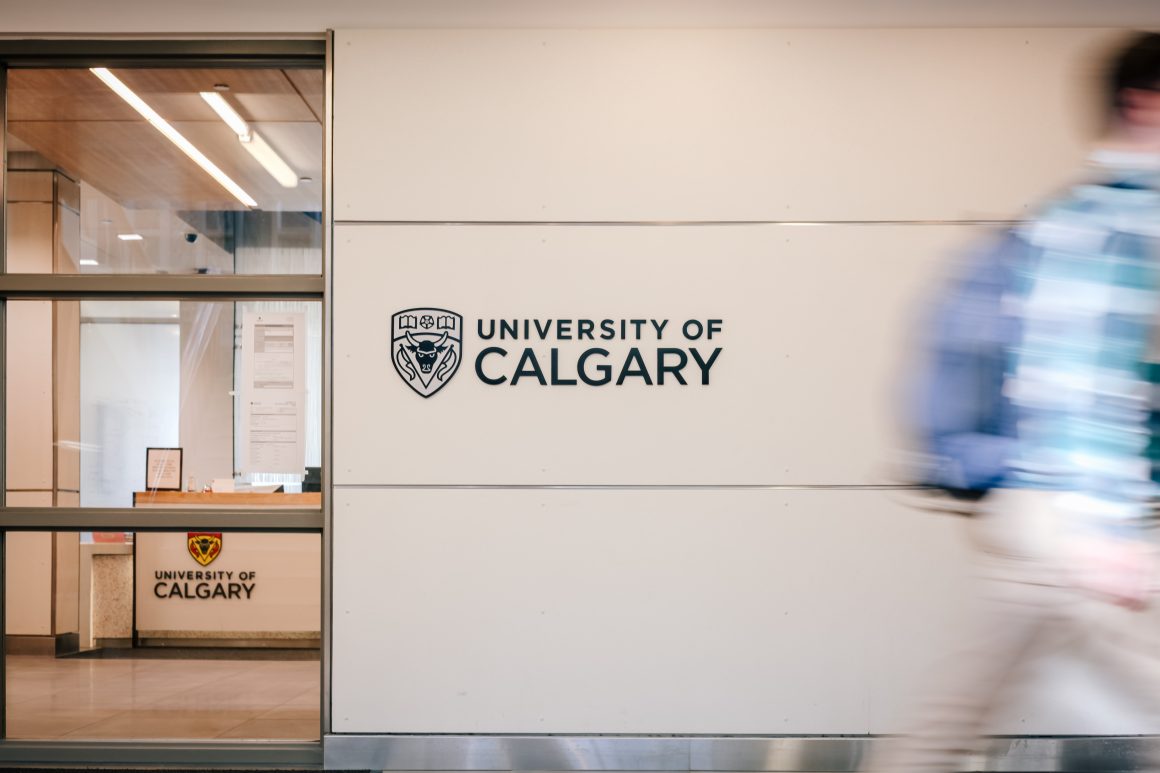
More layoffs expected, intersession courses online and more from the UCalgary budget and COVID-19 town hall
By Nikayla Goddard, April 26 2020 —
Originally scheduled for March 16 but postponed due to COVID-19 isolation, University of Calgary president Ed McCauley hosted a town hall to discuss the university’s 2020 budget in light of governmental cuts and COVID-19 effects. Over 2700 viewers attended the virtual town hall that reviewed previously known information as well as provided new updates for what to expect in the spring and summer intersession and the fall semester.
McCauley began by reviewing the impact the university will face as a result of budget cuts. UCalgary’s Campus Alberta grant in 2018-19 was $492.3 million, and after cuts the 2019-20 grant was $459.4 million (cut by $32.9 million) and the total for this upcoming 2020-21 year is additionally cut by $26.7 million for a total of $432.7 million.
A major change looming with regard to university budgeting are performance-based metrics.
“The objective of performance-based budgeting is to improve the efficiency and effectiveness of public expenditures by linking grant funding to performance results,” McCaulet explained. “The model being implemented in Alberta puts a portion of the provincial grant at risk, and failure to meet certain targets and keep performance areas will result in a loss of a portion of the grant.”
This leaves UCalgary with at-risk funding over the next three years, with up to 40 per cent of its future Alberta grants contingent on performance-based funding by 2022-23.
When it comes to considering future UCalgary budgets, McCauley explained that they are going to keep focus on eight budget principles: Alignment with Vision and Priorities, Student Experience, Success of Scholars, Campus Engagement, Mindfulness, Accountability, Transparency and Financial Sustainability.
Ongoing budget actions so far have included increasing tuition, cutting minimal impact programs, slowed or stopped strategic initiatives and projects, practicing hiring restraint, cutting jobs and stopping non-essential funding such as travel. Around 150 positions were terminated in 2019-20, with an additional 250 jobs to be cut this year.
McCauley also explained that UCalgary is looking into alternative revenue streams, many of which, he said, have the added benefit of making education more accessible.
“We are exploring an expansion of remote offerings, and certainly COVID-19 has provided us a crash course in remote education and the types of courses that are particularly well-suited for remote deployment. We will continue to pursue funding opportunities in research and otherwise, from our government partners as well as the private sector. And the emphasis that I want to put here is the University of Calgary will be emphasizing partnerships and we are a great partner in leveraging opportunities for the province of Alberta,” he said.
“COVID-19 has revealed a great deal about us and the world,” he said. “We are as well-positioned as [we] can be in as challenging as times as these.”
Provost and vice-president academic Dru Marshall then took over to provide a COVID-19 update, adding that spring and summer courses will be entirely online but will be returning to the regular grading system. They are also making an effort to introduce new courses with increased capacity for students to take given they may have more time without summer jobs.
Marshall touched on how COVID-19 would affect staffing, saying that remote work options are being prioritized, as well as “opportunities to redeploy the skilled labour that we have.”
“And, if that is not possible, we’ve tried to look to maximize our vacation leaves,” she continued. “Only at that point is it appropriate for us to look at layoffs. And I wanted to say that I think our HR team has worked very closely with AUPE to come up with what we think is an elegant solution to maintain and tether people to the university by continuing to provide many of the health benefits that we provide now while also ensuring that people are eligible for any of the federal support programs.”
Anyone who would be temporarily laid off would continue to be provided with health benefits.
In terms of layoffs, Marshall said the numbers aren’t expected to be high, “but as a publicly funded institution, we have to ensure that the people we’re paying are actually working.”
“In summary, we’re going to try to reduce the impact on people,” she added. “And I want to emphasize that temporary layoffs will be a short-term solution. We’re hoping people will be back to work as soon as we can open campus.”
During the Q&A session, McCauley remarked on their work on communicating with higher-ups to ensure support for students.
“We’ve been working very, very actively with Universities Canada as well as U15 to make sure that the various federal government ministries who can provide support to both our undergraduate and graduate students are made well aware of the importance of urgent funding for students during COVID-19,” he remarked. “We’ve also been making it very very clear to the Minister of Advanced Education as well as the Minister of Labour and Immigration in the province, a consistent message that [the Students’ Union and Graduate Students’ Union] has emphasized in terms of supporting highly qualified people during this stressful time to make sure that they can successfully complete their program and have the best possible student experience.”
One of the questions expressed concern over the ambiguity of the Fall semester, and Marshall responded that a team has been hard at work at scenario planning, and there has been “some bold thinking and potentially some really exciting options. Right now no decisions have been made.”
UCalgary has a variety of COVID-19 resources available, including an up to date website (link), student and staff wellness services and FAQs and information for students, faculty and staff, such as for remote working.
